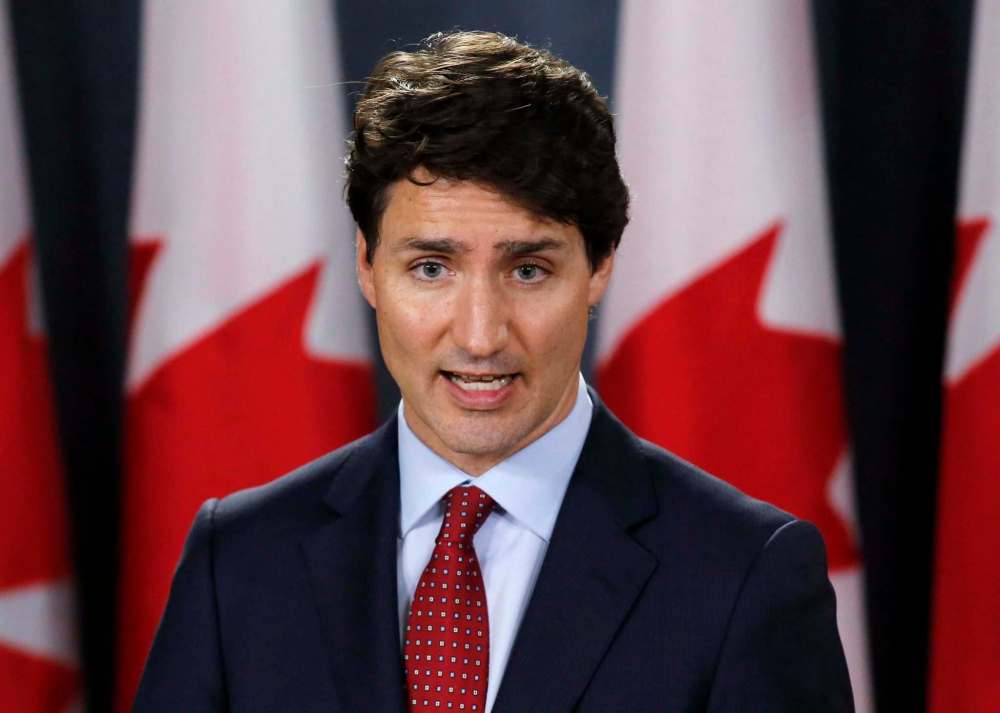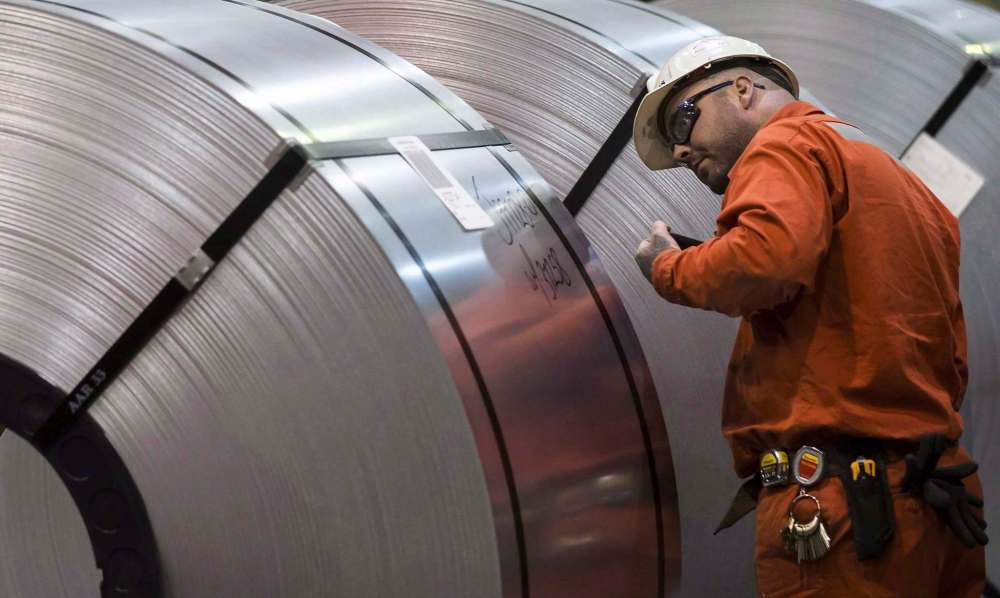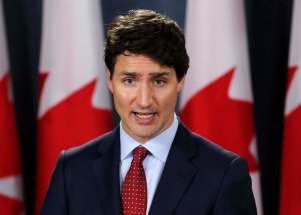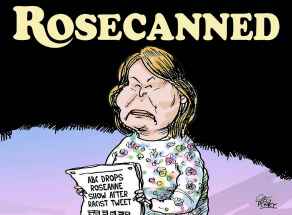Trump’s tariffs set stage for trade war
Read this article for free:
or
Already have an account? Log in here »
To continue reading, please subscribe:
Monthly Digital Subscription
$0 for the first 4 weeks*
- Enjoy unlimited reading on winnipegfreepress.com
- Read the E-Edition, our digital replica newspaper
- Access News Break, our award-winning app
- Play interactive puzzles
*No charge for 4 weeks then price increases to the regular rate of $19.00 plus GST every four weeks. Offer available to new and qualified returning subscribers only. Cancel any time.
Monthly Digital Subscription
$4.75/week*
- Enjoy unlimited reading on winnipegfreepress.com
- Read the E-Edition, our digital replica newspaper
- Access News Break, our award-winning app
- Play interactive puzzles
*Billed as $19 plus GST every four weeks. Cancel any time.
To continue reading, please subscribe:
Add Free Press access to your Brandon Sun subscription for only an additional
$1 for the first 4 weeks*
*Your next subscription payment will increase by $1.00 and you will be charged $16.99 plus GST for four weeks. After four weeks, your payment will increase to $23.99 plus GST every four weeks.
Read unlimited articles for free today:
or
Already have an account? Log in here »
Hey there, time traveller!
This article was published 01/06/2018 (2752 days ago), so information in it may no longer be current.
We see your steel and aluminum tariffs and we raise you steel, aluminum, yogurt, coffee, maple syrup, chocolate, pizza, jams, jellies, condiments, pickles, hair spray, after-shave, soap, detergent, toilet paper, mattresses, refrigerators, dishwashers, lawn mowers, sailboats, whiskey, ball-point pens and beer kegs.
It’s your move, America.
A furious fusillade of trade-related actions and retaliations was launched Thursday after the United States unilaterally imposed heavy tariffs on steel and aluminum imports from Canada, Mexico and the European Union. By day’s end, Canada and its largest trading partner appeared to be on the brink of a full-fledged trade war.

Justifying the blunt-force imposition of tariffs as “national security” concerns, U.S. Commerce Secretary Wilbur Ross said Thursday that ending the previously granted one-month tariff exemptions to regional trading partners Mexico and Canada, along with the EU, was at least in part due to the slow progress in renegotiating the North American Free Trade Agreement (NAFTA). The talks, said Mr. Ross, “are taking longer than we had hoped.”
The U.S. imposed tariffs of 25 per cent on steel imports and 10 per cent on aluminum imports, effective June 1.
Approximately 90 per cent of Canada’s steel exports head south of the border, while half of U.S. steel exports end up in Canada.
Canada responded quickly, as did Mexico and the EU. This country’s retaliatory tariffs are valued at $16.6 billion — a dollar-for-dollar matching of the U.S. tariffs’ impact — and will take effect July 1.
It’s a startling turn of events for Mr. Trudeau, who long has been lauded for his seeming ability to keep the often-impulsive U.S. President Donald Trump in check when it comes to Canada-U.S. relations. In some diplomatic quarters, Mr. Trudeau had been referred to, in lightly reverential terms, as “the Trump whisperer.”
But as the U.S. president’s frequent NAFTA-related outbursts — most recently referring to Canada and Mexico as “very spoiled” and “very difficult to deal with” — have demonstrated, there really is no reining in Mr. Trump. His grasp of trade-related issues seems rudimentary at best, with the primary concerns within his focus being “winning” and creating fodder for rally-ready proclamations about how he’s defending the American worker.
No mention, of course, of the cost of retaliatory trade measures on those same U.S. employees whose products are no longer priced for easy export, or American consumers who are hit hard in the wallet by higher-priced imported goods.

When it comes to the U.S. president’s embrace of expert counsel when dealing with matters of great import, one need look no further than this week’s agenda: Mr. Trump held a high-level meeting in the Oval Office on the issue of prison reform. The invited guest offering wisdom and direction: Kim Kardashian.
The frustration of Mr. Trudeau and Foreign Affairs Minister Chrystia Freeland was evident during the Thursday press conference in which Canada’s retaliation was outlined.
“We will continue to make arguments based on logic and common sense,” the PM offered, “and hope that eventually they will prevail against an administration that doesn’t always align itself around those principles.”
It’s America’s move — and one can only wonder if Mr. Trump’s ongoing inflammatory oration about the auto sector is a signal of what’s to come.







